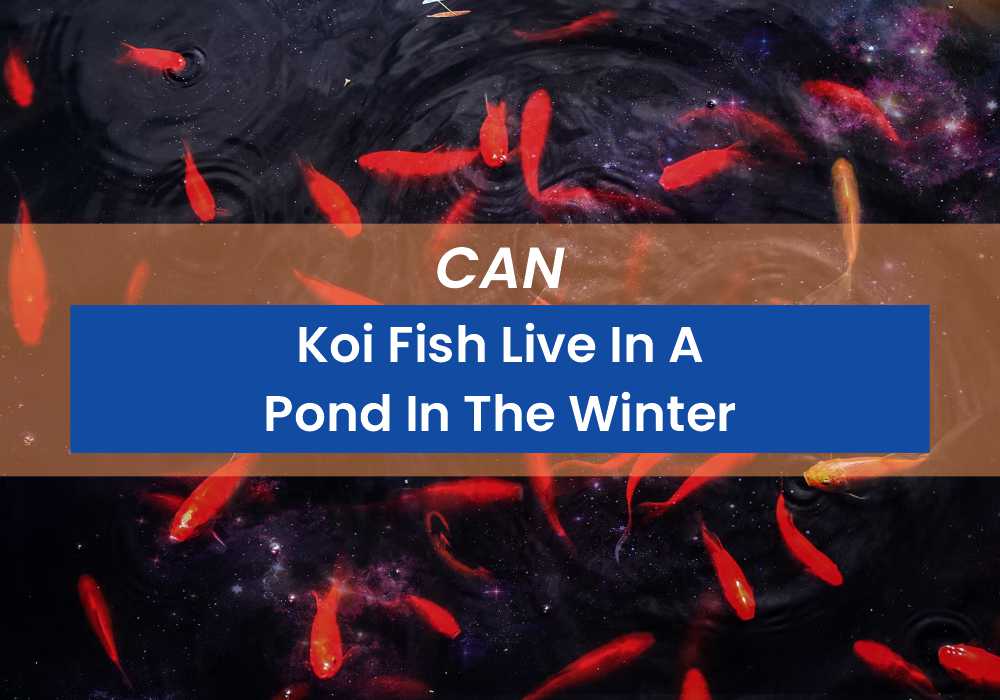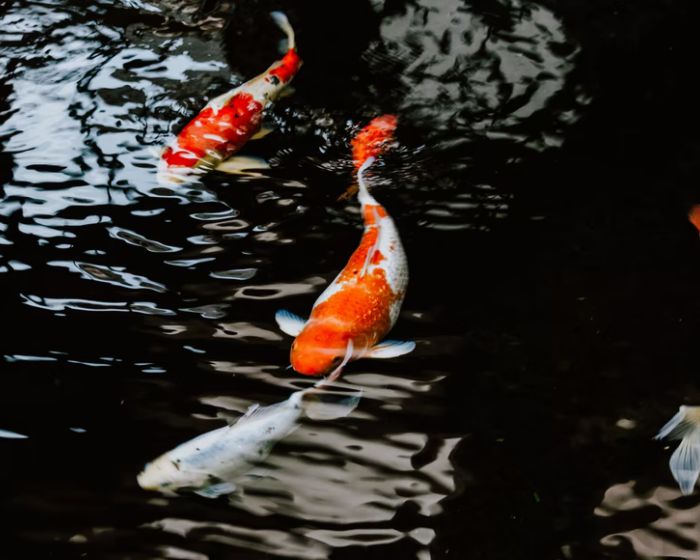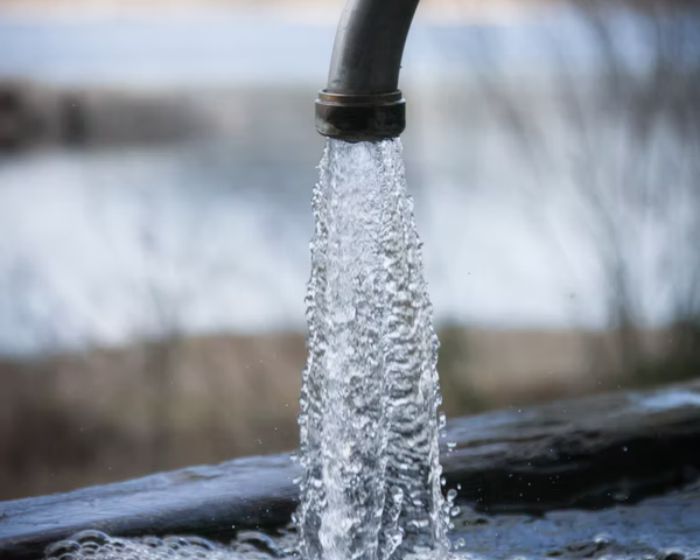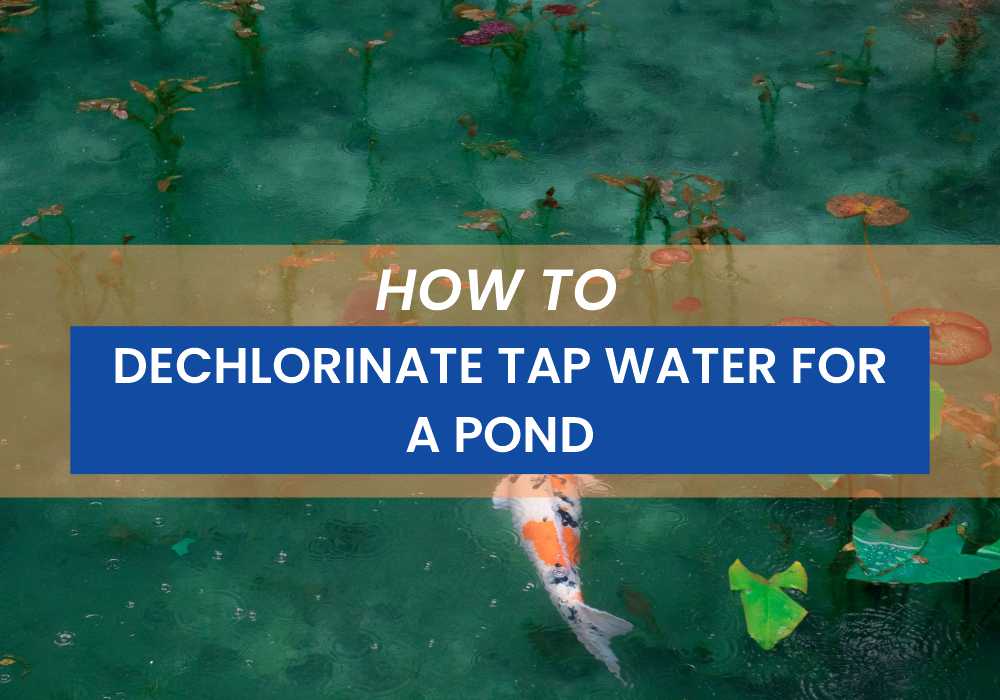As an Affiliate, We may earn a commission that doesn't cost you extra from qualifying purchases using links in this post. It helps keeps this blog running.
Before we proceed to explain if a koi fish can live in a pond during the winter, let me remind us that Koi fish are both beautiful and can become very long-lived pets. They can be kept in either outdoor or indoor ponds, but can also survive through winter provided their water has sufficient oxygen. Poor-quality water will not sustain koi if they are frozen on top, as they will not be able to surface in order to breathe.
Koi can live for almost 30 years and can grow up to 3 feet long. They can be found in varied colors such as gold, red, white, or black.
can koi fish live in a pond in the winter?
Yes, koi fish can live in a pond during winter because koi can live in 45-degree waters because of their leathery skin. They can survive for short periods in much colder water by using a type of antifreeze that is produced in their blood before winter comes, but during the winter when it gets under 40 degrees they can’t produce enough on their own and can be affected by hypothermia.
The best thing to do if you want to keep them during the winter would be to have a pond heater installed or have another way to heat the water up. There are two types of heaters one being an underwater heater that can only warm up 100 gallons at a time and can cost about $200 this option would not be good for larger ponds so your option could be an above-ground heater that can be plugged into the wall and can heat up about 1000 gallons at a time these can cost anywhere from $500-$2000.
how you can keep koi fish alive during winter
Koi fish is also known as the Japanese carp (Cyprinus carpio) is one of many species of freshwater aquarium fish used for decorative purposes. They are kept alive inside homes with the help of an aquarium or garden ponds. The reason why it can live even when there is frosty weather outside is because the domestic temperature provided by humans makes them comfortable enough to not die like they would if left outside in freezing conditions.
If you have a koi pond in your backyard, then here is how you can keep koi fish alive during winter:
- First of all make sure that the water in your pond does not freeze over for at least 6 months out of the year. If it does freeze, then this can lead to oxygen starvation because koi fish need oxygenated water to survive. If they are kept on ice or under snow for too long, then death can occur.
- It is best if you can get hold of an aeration system which help you pump air bubbles into the water. This can help you keep the oxygen levels high enough so that your koi can survive the chilly weather.
- If you have a pond heater installed, then use it to control the temperature of your koi pond during winters. Most models can be set up to ensure that temperatures do not go below 68 degrees Fahrenheit or 20 degrees Celsius which can still allow for koi fish to live inside their habitat.
- To make sure that they can survive under subzero conditions, consider getting an aquarium heater and run it continuously overnight at times when there is low insolation (less light reaching them). Keep this overhead running consistently even in the daytime if need be because this will allow for oxygen consumption without worrying about frozen waters.
- Now, if you can’t manage to do all of this then just rely on the heater that can only warm up 100 gallons at a time. Make sure that you can constantly monitor the temperature of the water throughout winter.
- It is very important that you watch out for your koi fish during winter because they can be susceptible to catching diseases due to cold weather which can lead to their death. This means having more frequent visits to your pond so you can check on them regularly and feed them more often than usual so they can gain weight quickly before winter comes again.
Although it is possible for koi fish to survive winters without any problems but care must be taken by the owner as well since even small changes in temperature can mean life or death for them. This can also depend on where you live and how cold it can be during the wintertime.
As long as your koi fish can maintain a healthy body temperature they can survive the colder weather but if this is not possible, then it can lead to hypothermia which can kill them. This can prevent the normal functioning of vital organs such as the heart and lungs so if you feel that you can’t take care of your koi fish during winters then maybe it is best to just keep them indoors until spring comes nearby again.
Are koi cold water fish?
Yes, Koi fish are categorized to be cold-water fish because of their ability to survive in lower temperatures such as 24-31 °C (75-88 °F).
Temperature is considered to be one of the most important factors, and it plays a large role in the overall health of Koi fish. It’s extremely important that you already know what kind of environment your koi pet prefers before you purchase them because there are many types of ponds that offer different thermal zones and water conditions. Keeping your koi pond at the ideal temperature for growth and long lifespan will require regular maintenance and consistent monitoring by you as the owner.
How cold is too cold for koi fish?
The lowest temperature a Koi fish can survive in is 4 degrees Celcius. Any lower than that, and your Koi fish life will be in danger. This is because Koi have a symbiotic relationship with a bacteria called “Flavobacterium Columnare”. If the water temperature drops below 5 degrees Celsius this bacteria will die off as it needs temperatures above 15 degrees Celsius to thrive. In addition, as the Flavourbacteria dies off, oxygen levels drop which causes further problems for stressed koi.
As well as this, Koi are susceptible to developing fungal infections if left in sub-zero temperatures for long periods of time; which can lead to death. How long they survive under these conditions depends on how healthy your koi is. Generally, the more alerts and responsive your koi appears to be, the better shape they’re in overall and therefore the better chance they have of surviving sub-zero temperatures. It also depends on what else you’re keeping with them as a stressed Koi is more susceptible to developing an illness.
What you can do to help them survive the cold: How tough your Koi are is down to their genetic makeup and how hardy they have been bred over time. The weaker ones die off naturally in sites where winter temperatures drop below 5 degrees Celsius, so if you still have any of these fish in a pond under 5 degrees, you’re going to need a way of keeping them warm enough through the winter. An easy way of doing this is by using a pump that runs under the water during the winter that brings warmer water from somewhere else into your pond.
What temperature can koi survive in?
Koi fish like and can survive in temperatures ranging between 65 and 75 degrees F (18 to 24 C) in outdoor ponds, but this can vary depending on the variety of koi.
What if the water gets too cold?
When the water drops below 40 degrees F (4.5 C), koi fish will likely fall into a state of hibernation called torpor. This is an involuntary response, and during this time the fish will breathe at a much slower rate than normal and also stop eating altogether. How long they stay in torpor varies depending on how low their environment’s temperature gets; it may be as little as a few days or as long as several months. Torpor can be extremely dangerous for koi fishes because their heart rates and respiration rates become very slow, which makes them vulnerable to disease and predators like turtles and large insects who can invade their ponds. To avoid this, make sure you keep your koi in a pond that stays above 60 degrees F (15.5 C).
How can I tell if my koi are in torpor?
Torpor is a semi-dormant state that fish goes in when the water temperature drops below survival level, and in this state, your fish’s activity level slows down drastically. If your koi are in torpor, their scales will be depressed against their skin, much the same way they are when you take them out of the water after being kept in an aquarium. When you force them to swim around in your pond or tub again, you might notice that their scales pop back up into place. How do I wake my koi?
To wake up a koi from its state of hibernation, gradually warm the water until it rises to at least 60 degrees F (20 C). Slowly raise the temperature by five-degree increments each day until you’ve reached 70 degrees (21 c).
What temperature do koi like?
Koi fish likes being kept around 65 to 75 degrees Fahrenheit and this is because it is the temperature most aquatic plants and koi fish live in their natural habitat.
In most cases, keeping koi fish at this temperature is enough for them to live a good life. There are times when the pond temperature falls below what the koi fish likes or even higher than it and you have to bring out its heater.
To tell if they have been affected by the change in temperature especially when you need to use their heater, lookout for signs of gasping at the surface of the water or showing other hints.
Can koi fish live in a frozen pond?
Koi fish are cold water fish but they cannot survive in water that is colder than 40 degrees Fahrenheit or completely frozen. Because at this point, their bodies will begin to slow down and enter a state called “torpor”, which is very much like hibernation for animals. If you have a deep pond this isn’t as dangerous because the koi can go into the deeper regions of the pond where it’s warmer but if your koi fish are forced into an area that’s completely frozen then they can be killed off.
Conclusion
To keep koi fish safe during the winter, keep their water above 40 degrees Fahrenheit and be sure to move them if your pond freezes over completely. If you have a shallow pond you should also invest in a pump that brings warmer water from another location into your pond. These precautions will help ensure that your koi stay healthy all year long.

I’m Akin Bouchard. Even though I now own several different fish species, I first became a koi pond owner because I loved these creatures and wanted to turn my passion into something more serious. I take pride in my collection of koi fish and love sharing my knowledge with others interested in these beautiful creatures.




